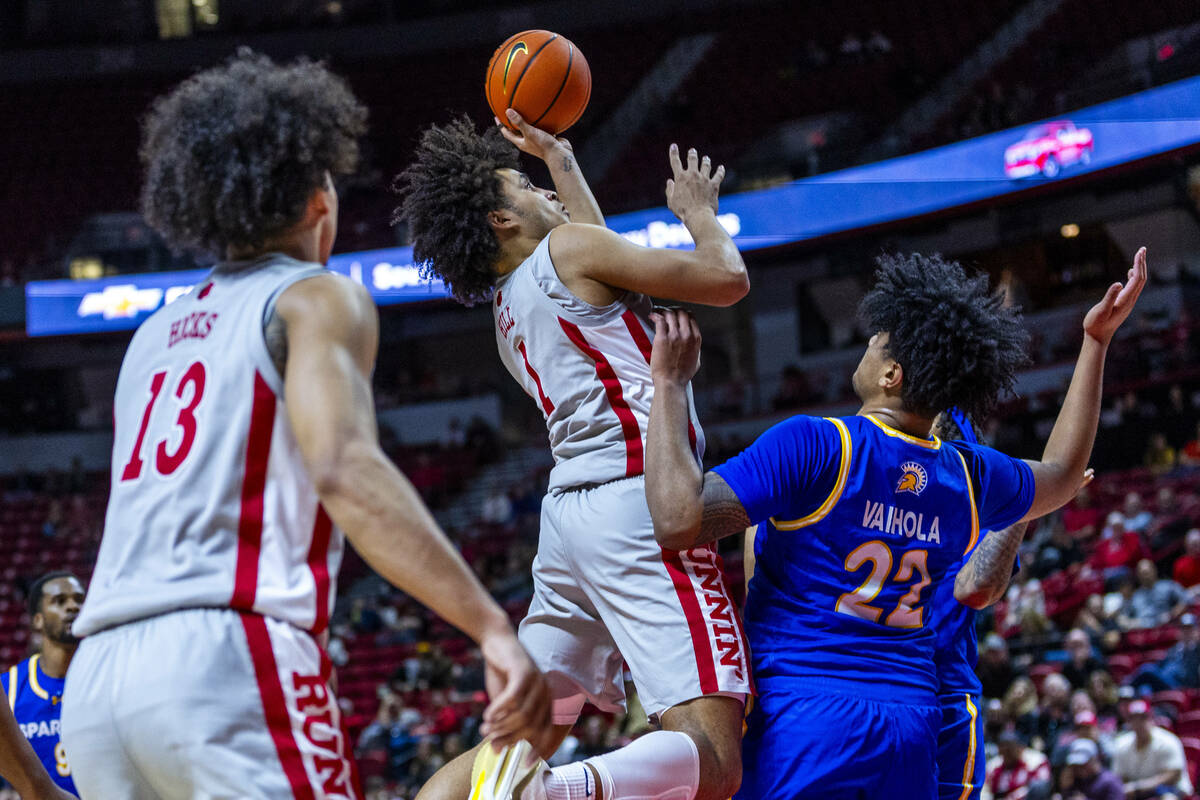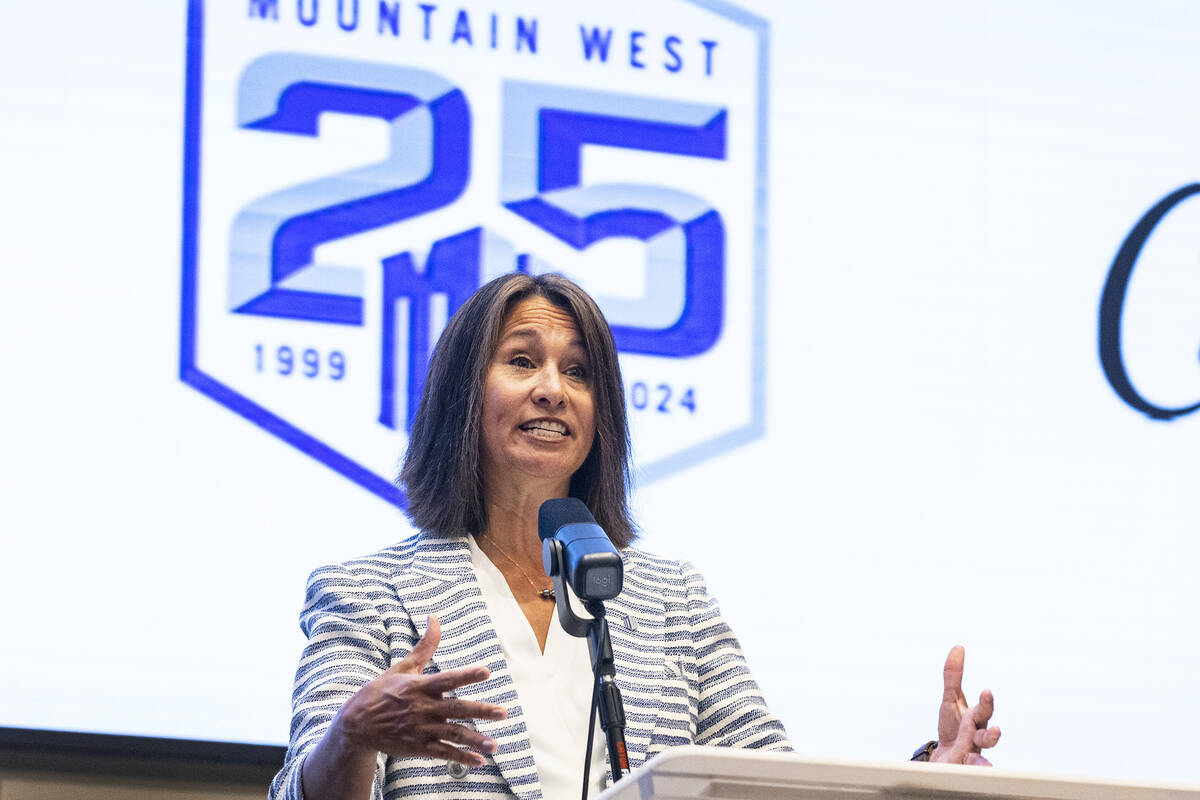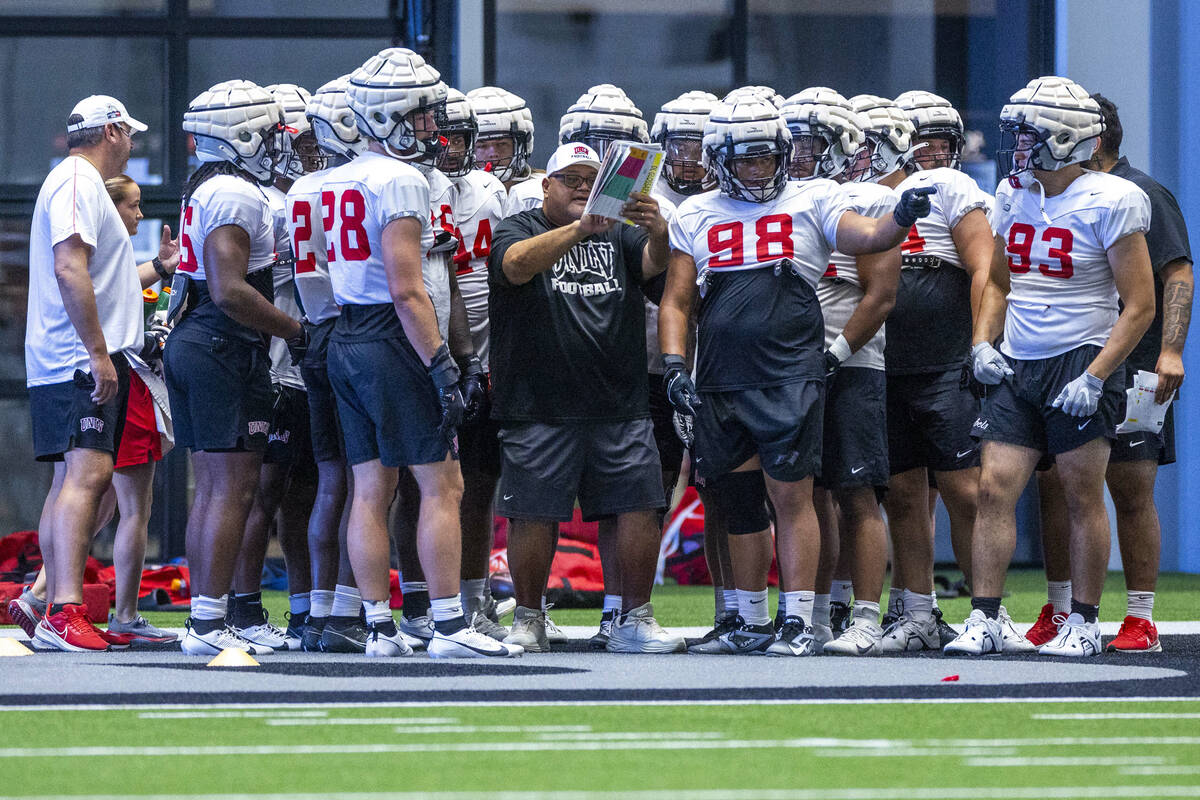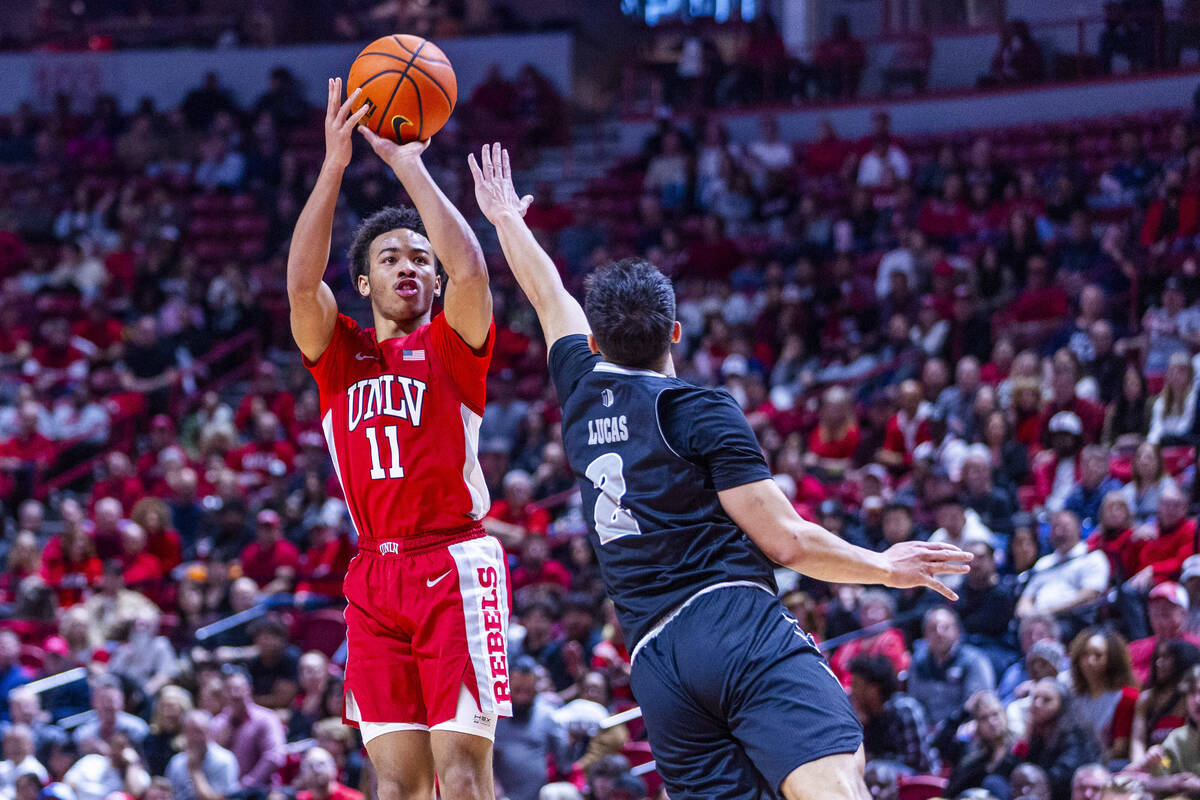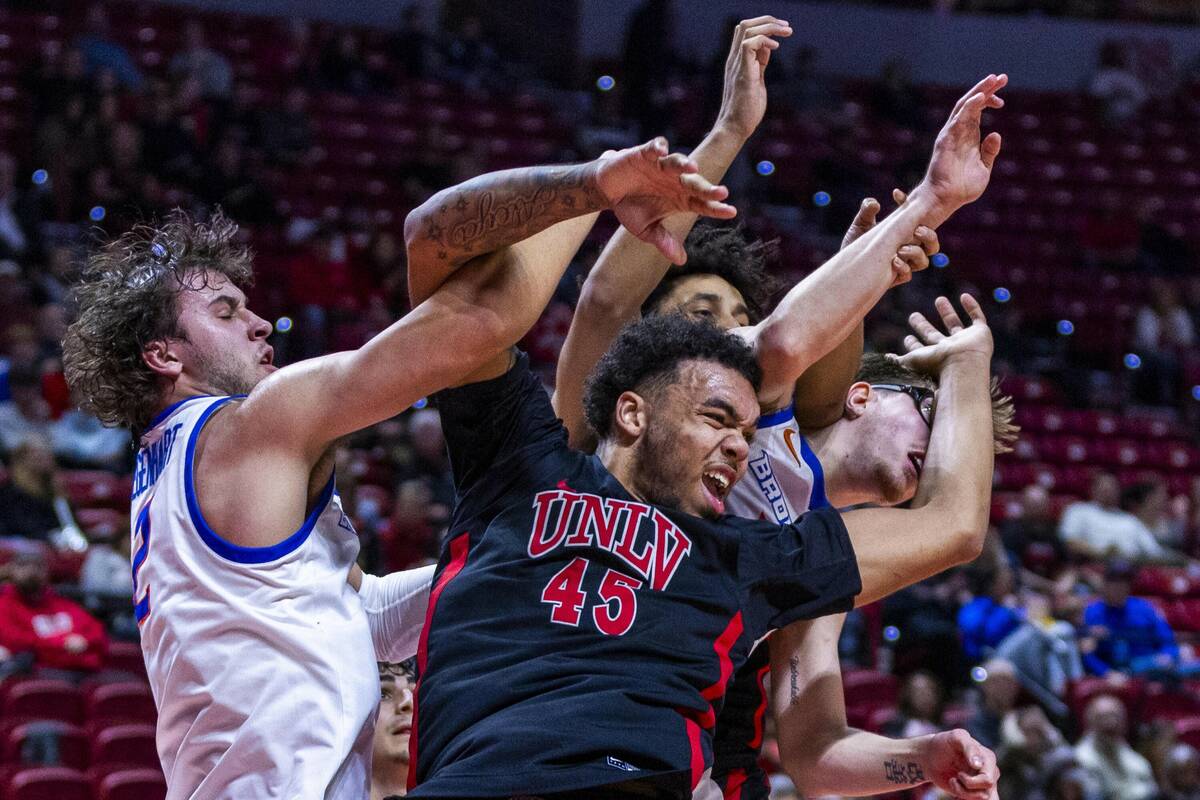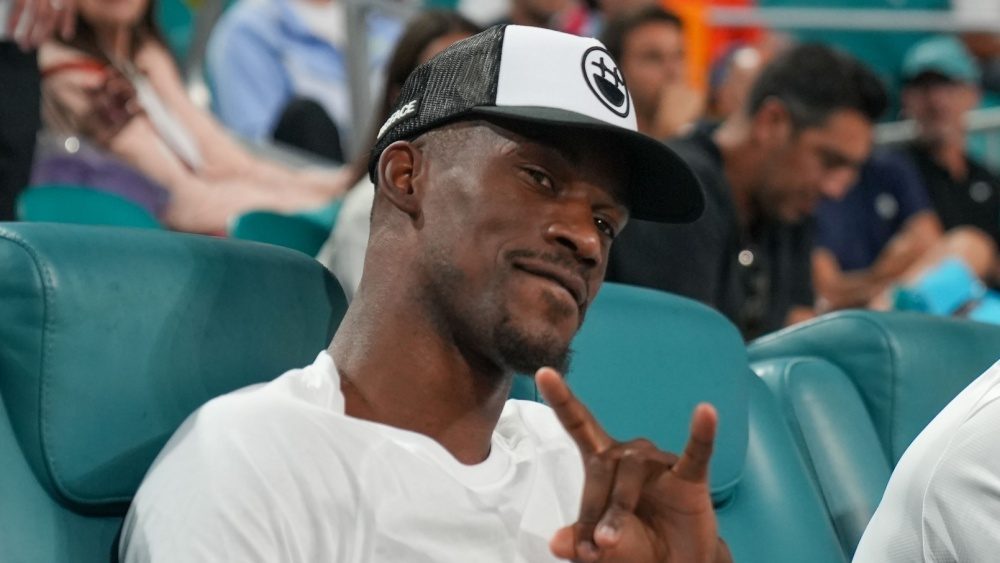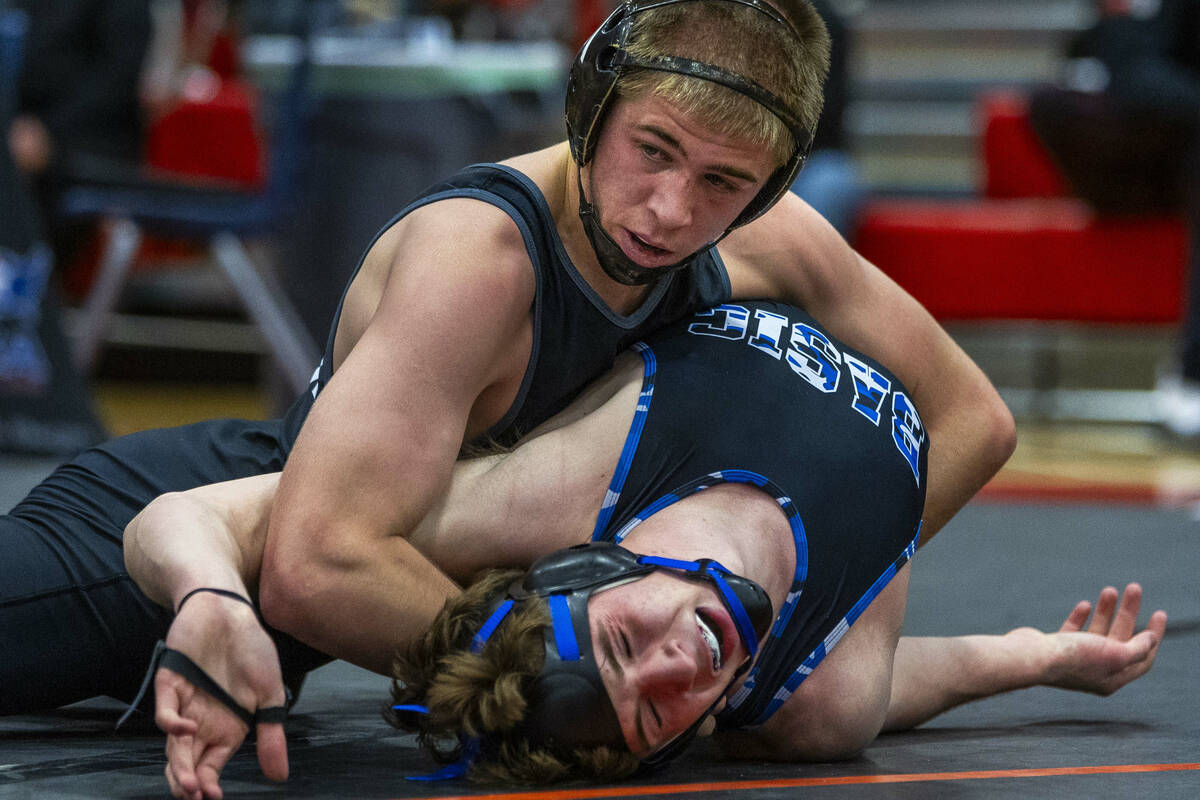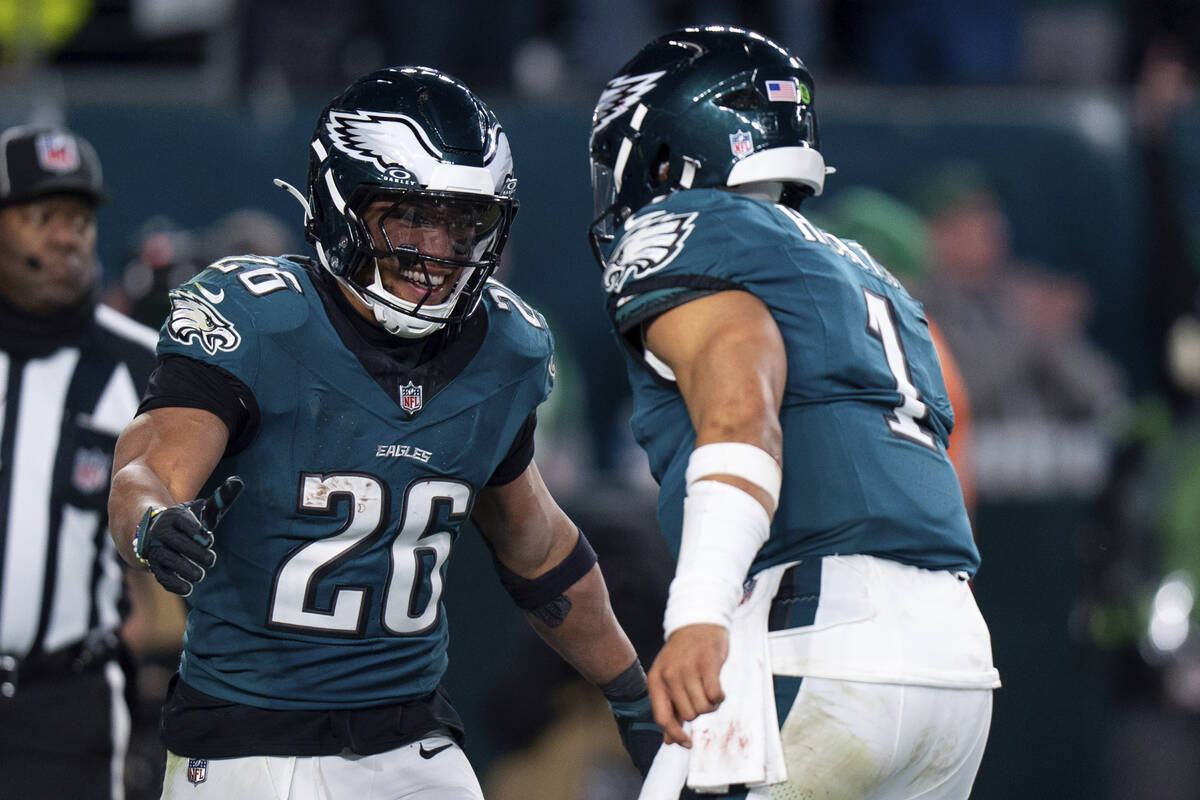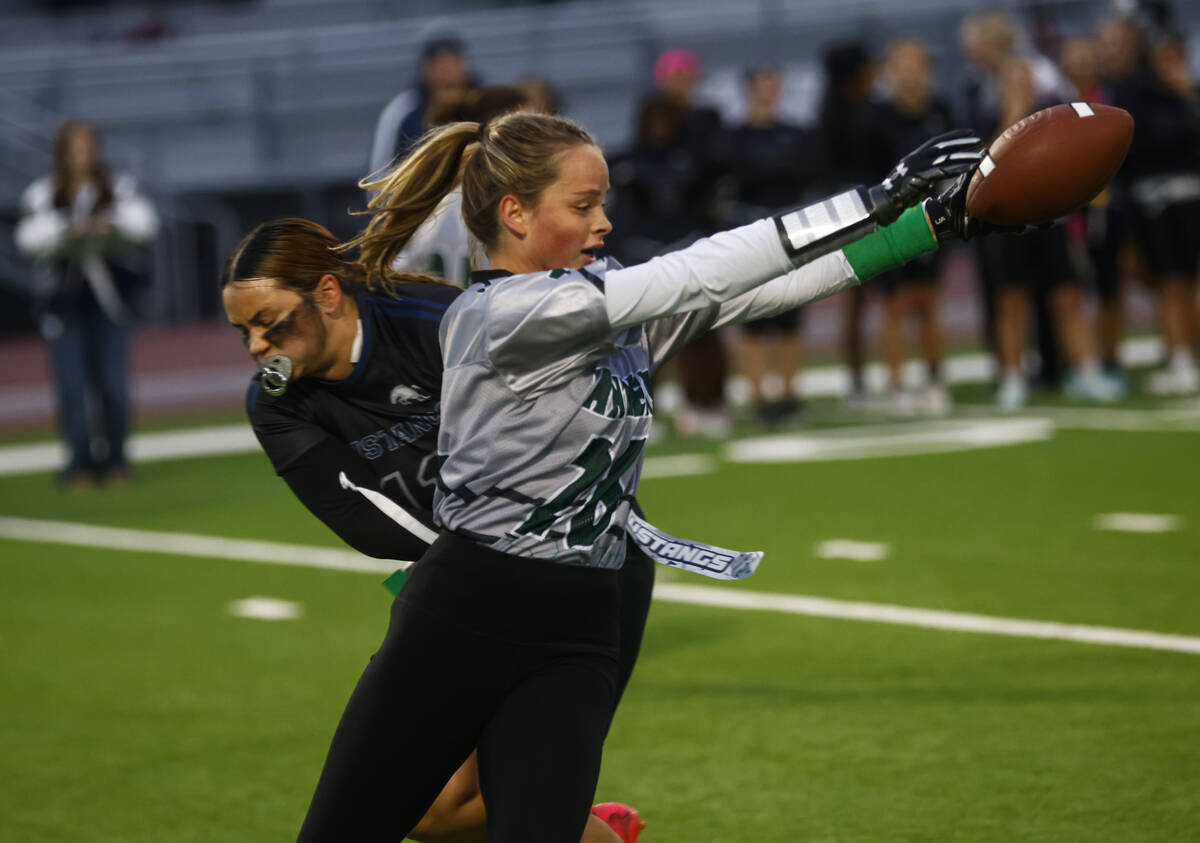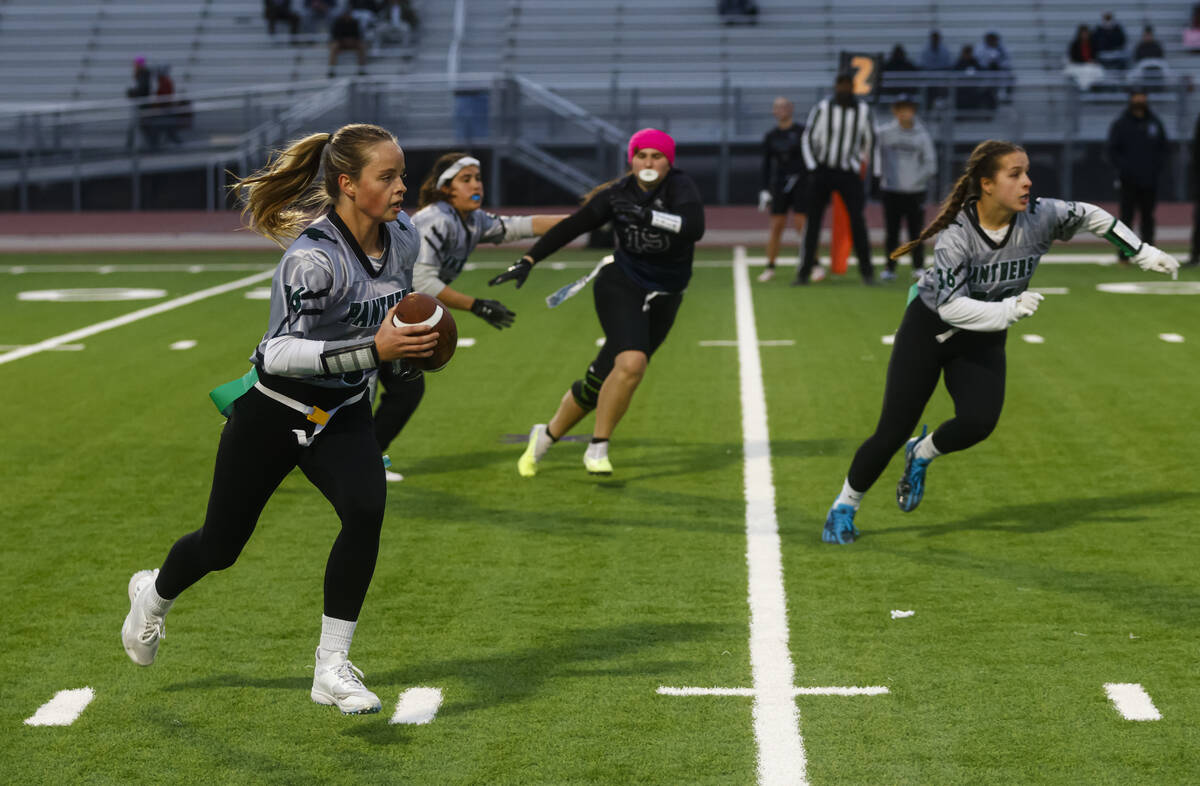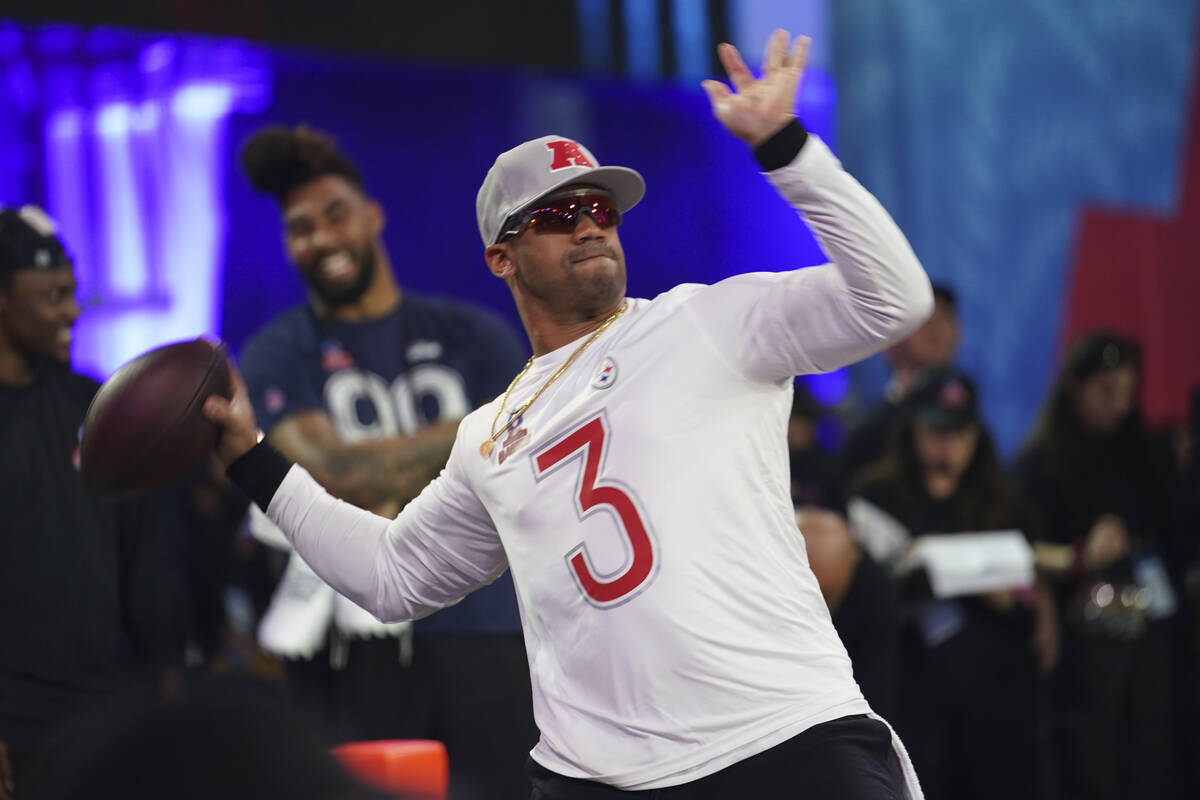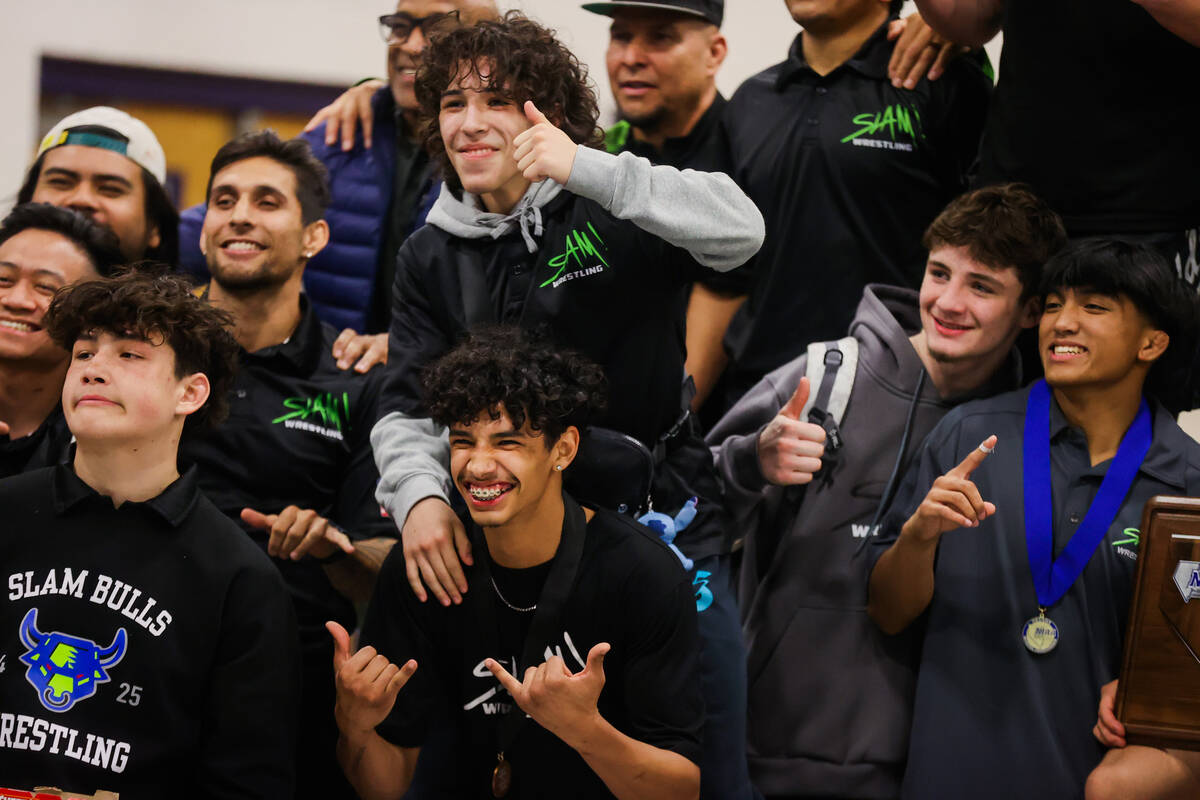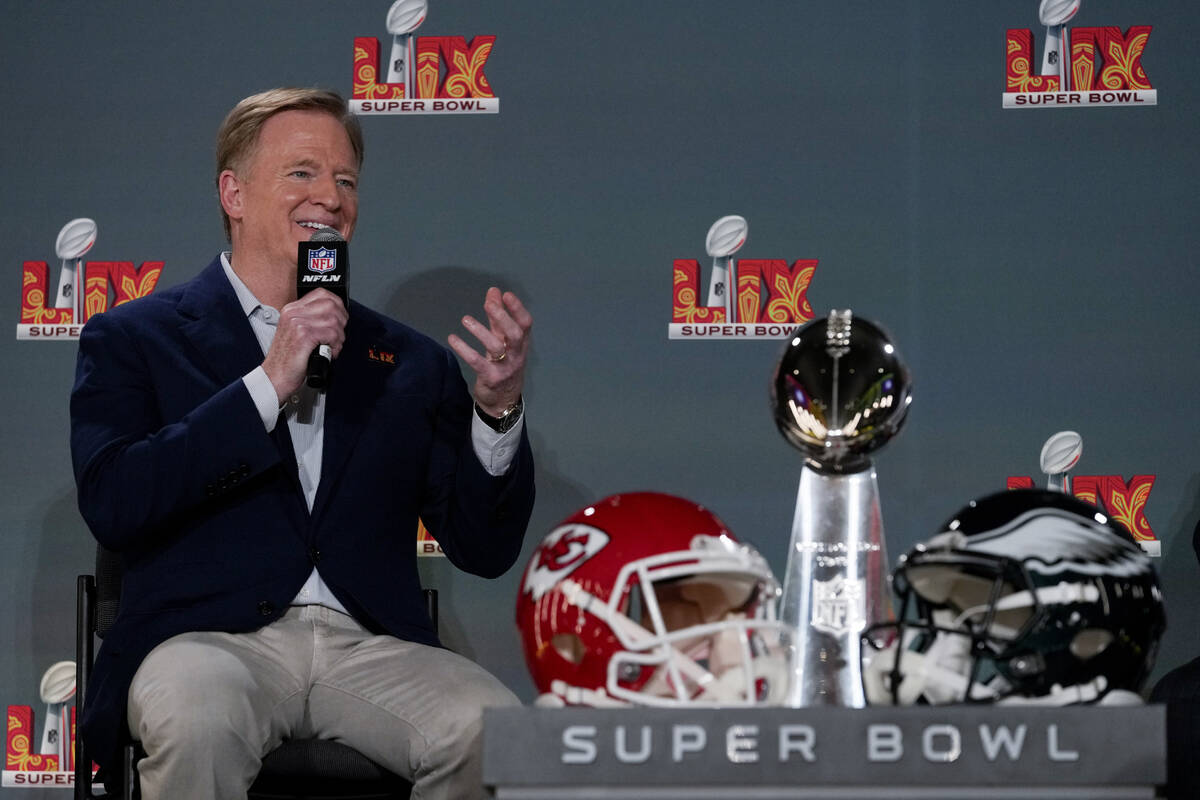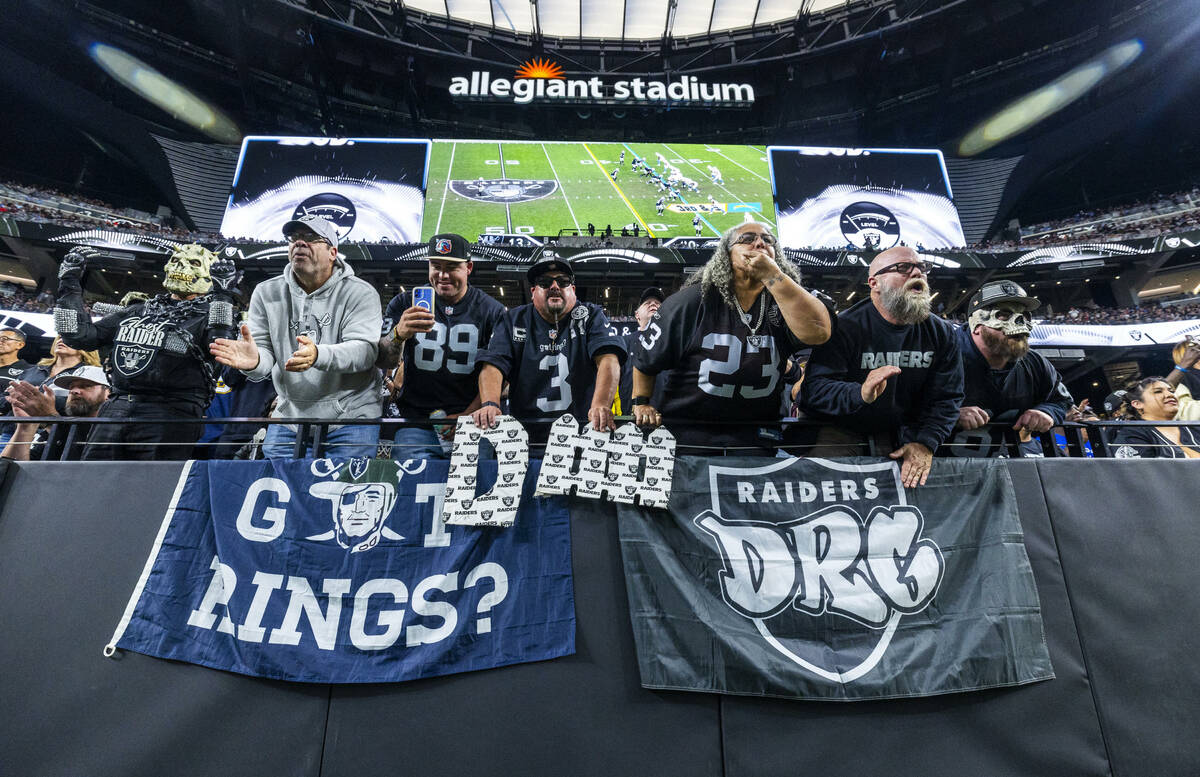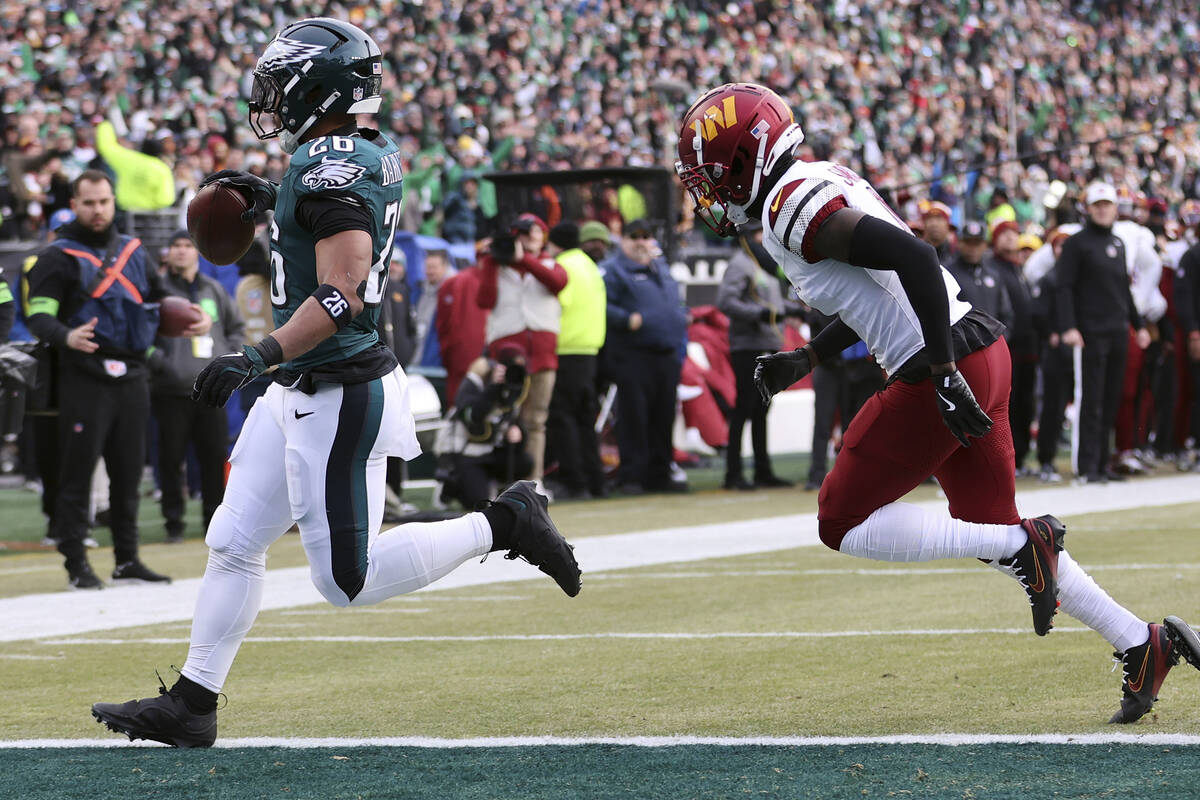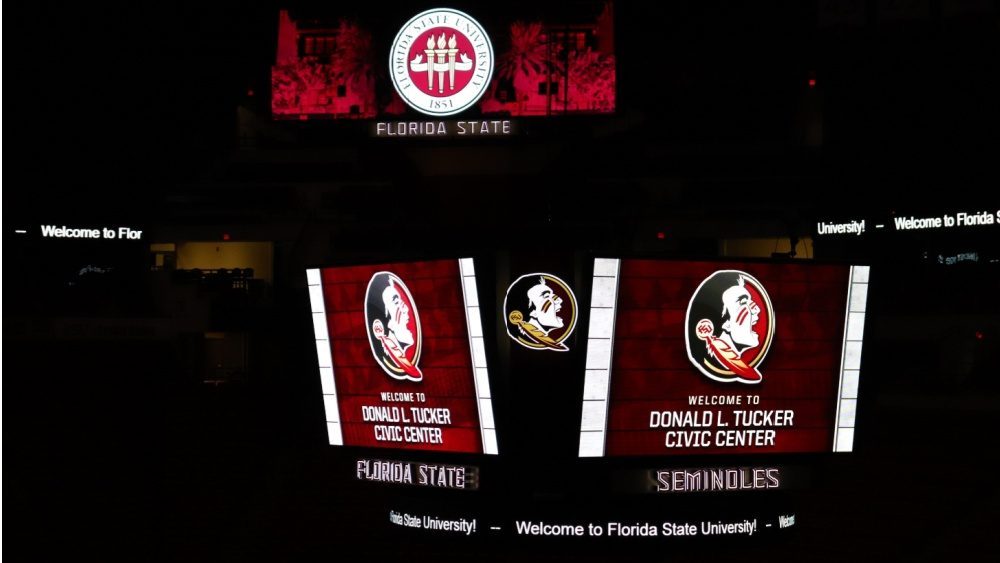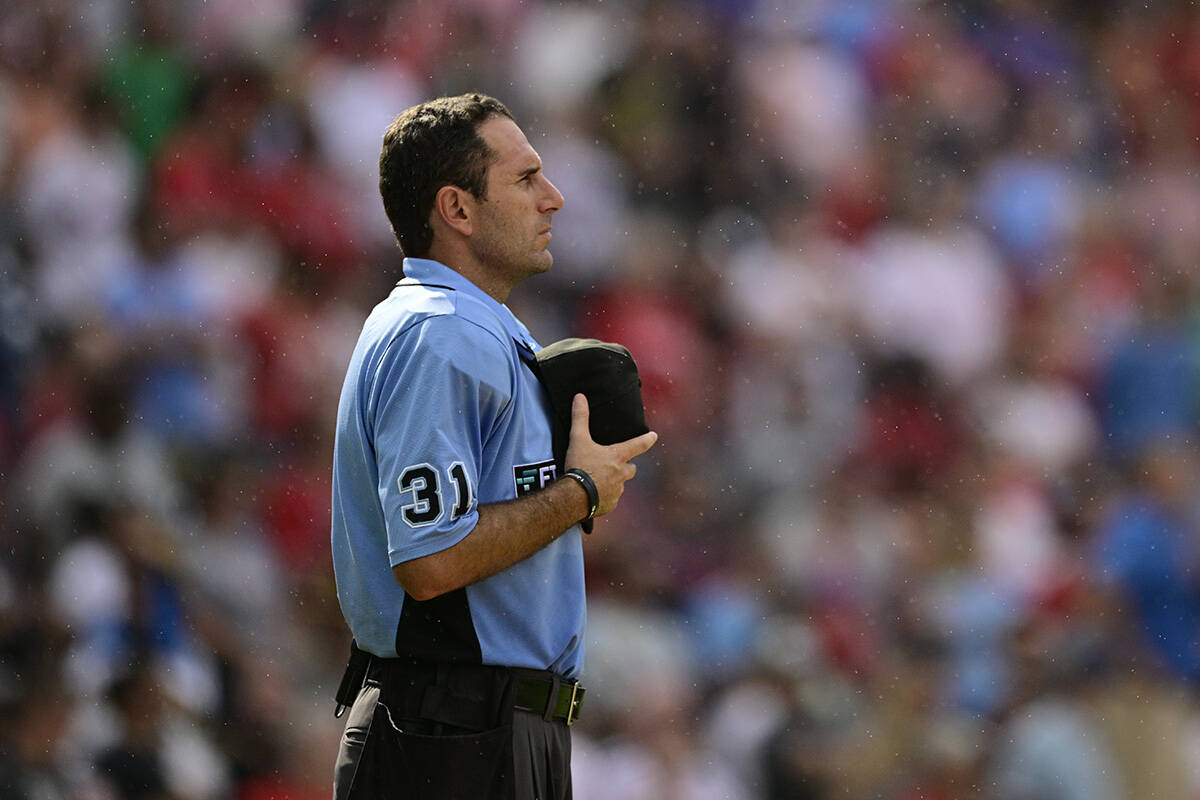As the dancers of UNLV’s Rebel Girls & Company were named champions in front of their peers on the collegiate dance circuit last month, it was a place they had been before.
They had double-titled in the same hip-hop and game day categories four years earlier at the Universal Dance Association’s championships – the biggest weekend in college dance – just one in a run of dominant national showings for the team over the last decade.
It was a legacy that Alya Kretchman knew well, recalling the years when as a teenager she would watch YouTube videos of the Rebels’ national performances for hours on end while growing up in her hometown of Fargo, North Dakota.
“I always thought it was so cool how in sync they are, and their style was always way over the top from everybody else’s,” said Kretchman, now a UNLV dancer in her fifth and final year with the team.
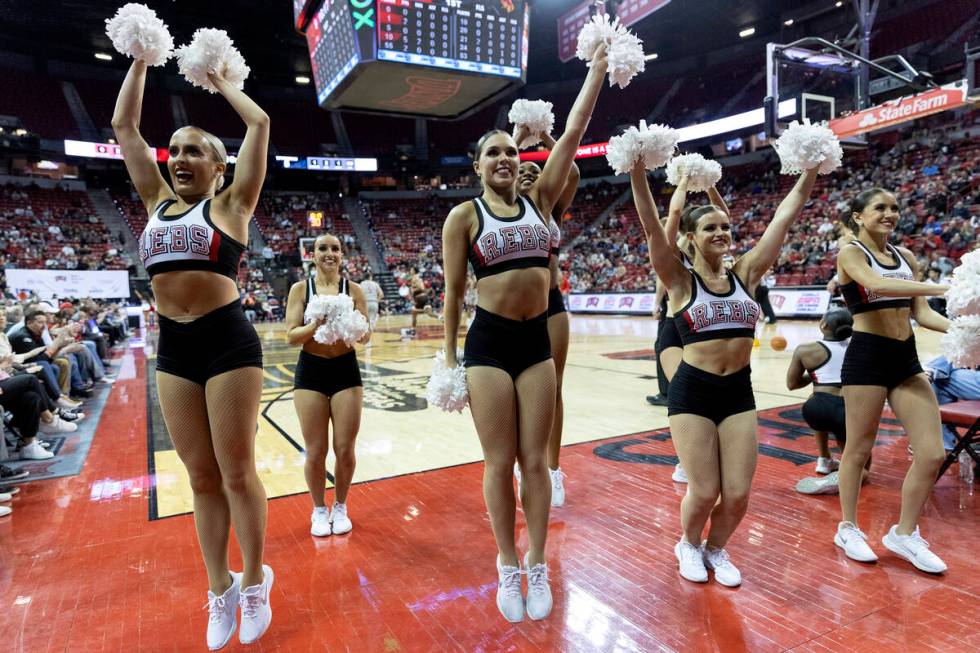
The team’s reputation on the national and international dance circuit has emerged as head coach Marca DeCastroverde has worked diligently to capitalize on a network of talented alumni to produce championship-winning choreography and moved to make the team co-ed.
But this year’s national championship win was different.
After winning titles in 2020 and 2021, the Rebels came in third place in last year’s hip-hop category at nationals. In the wake of their third-place finish, the Rebels – who allowed male dancers to join their ranks for the first time in 2017 – also were confronted with digs from competitors questioning whether programs like theirs had relied on male dancers to perform tricks and feats that unfairly elevated their choreography.
But that criticism served as fuel for the dancers and coaches to work harder, train differently and above all, choreograph a dance – set to Dr. Dre and Eminem’s seminal diss track “Forgot About Dre” – for this year’s championships that sent a message to their peers on the national stage.
“We’re still here, and we’re still in this,” DeCastroverde said. “Don’t forget about us.”
 The dancers of UNLV’s Rebel Girls & Company await results at the 2023 Universal Dance Association College National Championships at the ESPN Wide World of Sports Complex in Orlando, Florida. (Ricky Witt/Courtesy of Rebel Girls & Company)
The dancers of UNLV’s Rebel Girls & Company await results at the 2023 Universal Dance Association College National Championships at the ESPN Wide World of Sports Complex in Orlando, Florida. (Ricky Witt/Courtesy of Rebel Girls & Company)  Fifth-year dancer Alya Kretchman performs with the Rebel Girls & Company during a timeout of a UNLV basketball game at the Thomas & Mack Center on Jan. 24, 2023, in Las Vegas. (Ellen Schmidt/Las Vegas Review-Journal) @ellenschmidttt
Fifth-year dancer Alya Kretchman performs with the Rebel Girls & Company during a timeout of a UNLV basketball game at the Thomas & Mack Center on Jan. 24, 2023, in Las Vegas. (Ellen Schmidt/Las Vegas Review-Journal) @ellenschmidttt 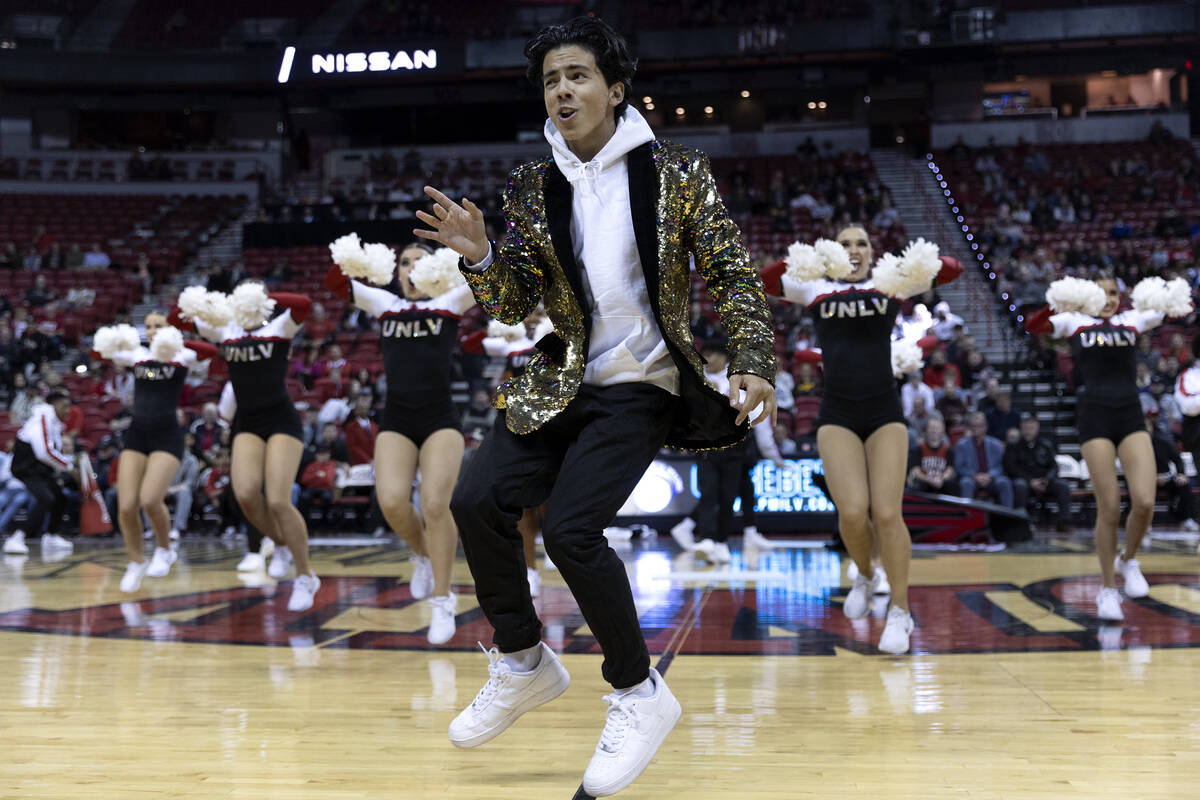
Winning ‘undeniably’
DeCastroverde, who danced with UNLV from 1998 to 2002, has coached the Rebel dancers for two decades now.
During her years as a dancer with the team, the program wasn’t as competitive as it is today. In her first year bringing the team to the national championships in 2006, she said, UNLV placed 16th.
So, DeCastroverde began watching what the top-placing teams were doing with their choreography and transitions. The dance program began leveraging connections with alumni like Napoleon and Tabitha D’umo of “So You Think You Can Dance” fame to choreograph routines and put the team on the map nationally.
The team won its first national championship in 2013 – the same choreography that Kretchman remembers watching on repeat from Fargo – and has been a fixture in the top three at nationals ever since.
The team also made the decision to go co-ed, which DeCastroverde called a dream years in the making.
“I wanted there to be an experience and opportunities for young males to not only get their education but to be a part of a dance program,” she said. “If you look, there’s not a lot of that going on, especially in college athletics.”
But following their third-place finish in the hip-hop category at last year’s nationals, the Rebels also had to contend with pointed comments implying that having men in their ranks benefited them unfairly.
“Some of the people we compete against have boys on their team,” one rival dancer said in an interview following the competition last year. “We don’t need all those tricks. We don’t need all these extra people.”
For Abinet Hilete, a senior and one of the Rebels’ male dancers, UNLV’s status as one of the few collegiate co-ed dance teams in the country means setting an example for men.
“Marca, our coach, always talks about changing the game,” he said. “As a co-ed team we try to really incorporate that in what we do and show guys that they can dance if they want to on a collegiate level.”
Ultimately, DeCastroverde decided that the best way to respond to the discourse about the team’s dynamics was through music and movement.
The movement for this year’s routine was choreographed by Andrew Elam, with Los Angeles dance studio The Lab.
For the music, DeCastroverde chose “Forgot About Dre,” a now-iconic anthem released in 1999 by hip-hop magnate Dr. Dre as his own clapback to rival and then-CEO of Death Row Records Suge Knight.
“To me the lyrics to the song are like … ‘We’re still here,’” she said.
The team also changed the way it trained, adamant that men and women all learn the same moves.
“They’re gonna talk the talk about how girls can’t do what all the guys can. … Let’s show them that we can,” Kretchman, the fifth-year dancer, said.
On the day of their nationals performance, the dancers walked onto the stage wearing matching scarlet suits – their school colors – with the female dancers’ hair pulled back to give the team a uniform, gender-neutral look.
Above all, DeCastroverde had one lesson to impart to her team ahead of the competition: The way they lose is just as important as the way they win.
“If this doesn’t work out in our favor, I expect you to be good losers and good winners and not make people feel the way they made you feel last year,” she recalled telling her dancers ahead of this year’s championships.
In the end, the Rebels scored a 99.1 for their hip-hop routine, their highest score ever.
“When we win, we have to win undeniably,” DeCastroverde said.
https://www.youtube.com/watch?v=xefbYTDeOk0
‘It’s storybook’
For Kretchman, this year’s win also marked a hard-fought return for her to the nationals stage.
After tearing her meniscus for the third time, the now 22-year-old opted to have a surgery that would put her out of commission for last year’s championships as she underwent the long recovery period.
“I wasn’t sure if I’d be able to dance again or not, just because if it tore again, I was done for sure,” she said.
It wasn’t the senior year she envisioned for herself, and returning this year imbued her with a sense of gratitude.
“I got a whole new perspective of gratitude for dance, for the coaches, for everything about it,” she said.
After coming back, Kretchman trained to be able to do the same kind of tricks that had garnered her male teammates criticism from some in the collegiate dance community.
That training paid off.
As the final choreography for the Rebels’ national championship routine took shape, Kretchman found herself in the center of a trio of dancers – the lone female – who had to execute a synchronized 540, a lateral jump in which the dancers rotate their bodies 540 degrees, taking off with and landing on the same leg.
For Kretchman, that meant landing on the same leg that had kept her out of competition the year before.
“It’s storybook,” Hilete remarked of the significance.
But Kretchman said the moment spoke more to the training and dedication of the other female dancers who also had learned to execute the 540, and of the team that had perfected the same moves and choreography together this year.
“We honestly all could have been in that spot and would have been able to pull it off because we all train that,” she said.
 Alya Kretchman performs a synchronized 540, a jump where the dancers rotate their bodies 540 degrees, during UNLV’s Rebel Girls & Company hip-hop performance at the 2023 Universal Dance Association College National Championships. (Ricky Witt/Courtesy of Rebel Girls & Company)
Alya Kretchman performs a synchronized 540, a jump where the dancers rotate their bodies 540 degrees, during UNLV’s Rebel Girls & Company hip-hop performance at the 2023 Universal Dance Association College National Championships. (Ricky Witt/Courtesy of Rebel Girls & Company)  Alya Kretchman, right, poses for a photo at the 2023 Universal Dance Association College National Championships at the ESPN Wide World of Sports Complex in Orlando, Florida. (Ricky Witt/Courtesy of Rebel Girls & Company)
Alya Kretchman, right, poses for a photo at the 2023 Universal Dance Association College National Championships at the ESPN Wide World of Sports Complex in Orlando, Florida. (Ricky Witt/Courtesy of Rebel Girls & Company) 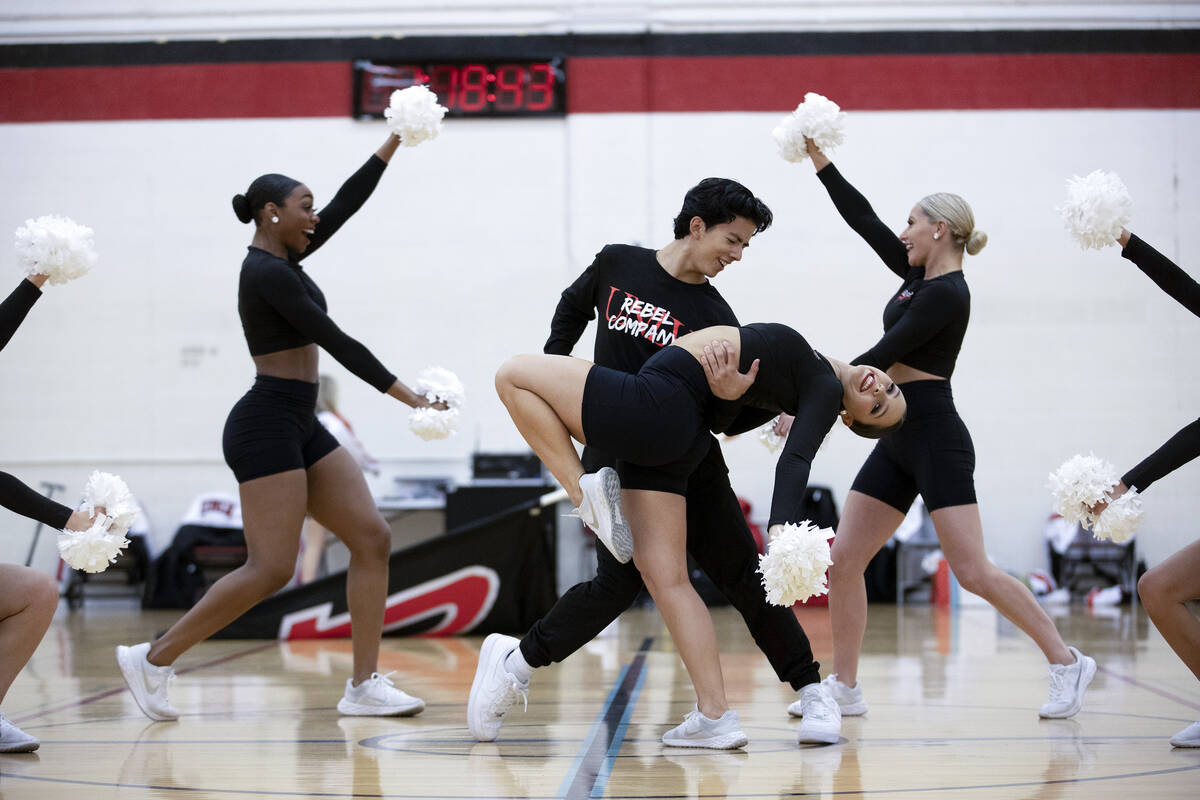
’Still the same O.G.’
On a Tuesday toward the end of January, a week after the national championships, the Rebel Girls & Company practiced inside the university’s Paul McDermott Physical Education Complex, readying themselves to perform at their first basketball game since winning the national titles.
As their teammates practiced their winning game day routine in the background, Hilete and Kretchman reflected on what it had meant to train together over the last year.
For Hilete, the experience had taught him that there was perhaps more to be learned from the team’s losses than even its wins.
 Freshman Jonathan Jaramillo rehearses his part in the Rebel Girls & Company basketball game timeout routine during practice at McDermott Physical Education Complex on Jan. 24, 2023, in Las Vegas. (Ellen Schmidt/Las Vegas Review-Journal) @ellenschmidttt
Freshman Jonathan Jaramillo rehearses his part in the Rebel Girls & Company basketball game timeout routine during practice at McDermott Physical Education Complex on Jan. 24, 2023, in Las Vegas. (Ellen Schmidt/Las Vegas Review-Journal) @ellenschmidttt  Senior Abinet Hilete, center, rehearses a hip-hop routine during a Rebel Girls & Company practice at McDermott Physical Education Complex on Jan. 24, 2023, in Las Vegas. (Ellen Schmidt/Las Vegas Review-Journal) @ellenschmidttt
Senior Abinet Hilete, center, rehearses a hip-hop routine during a Rebel Girls & Company practice at McDermott Physical Education Complex on Jan. 24, 2023, in Las Vegas. (Ellen Schmidt/Las Vegas Review-Journal) @ellenschmidttt 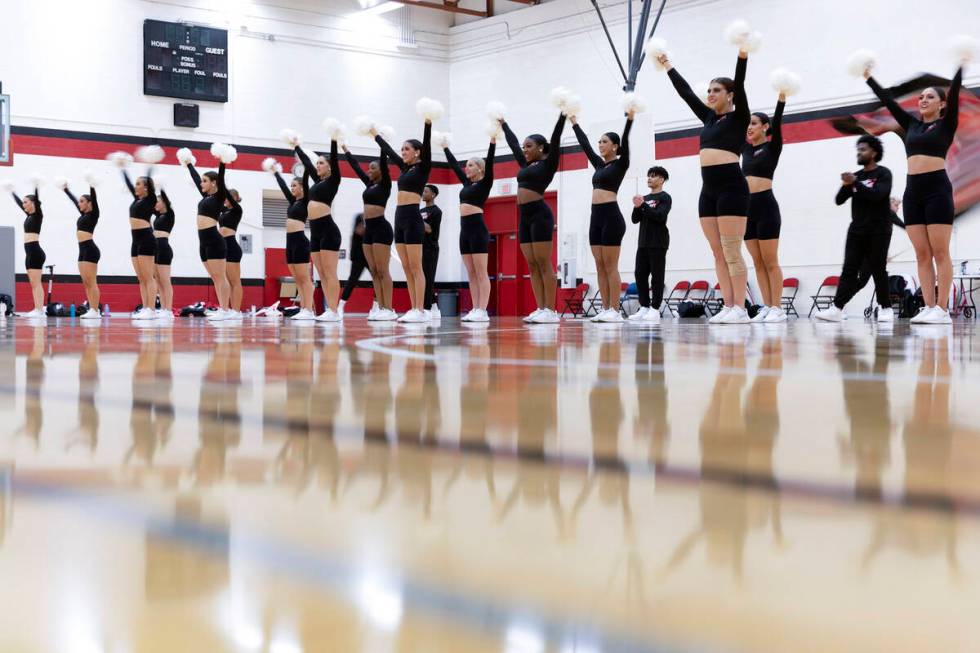
“When you win, sometimes you can let things slide,” he said. “But when you lose, it kind of comes into focus.”
Kretchman, who plans to move back home to North Dakota and coach at her mother’s dance studio, called the finals showing the perfect ending for her career at UNLV, which began with the team’s double-title performance in 2019.
“I’m going out the same way I came in,” she said.
But for the dancers and coaches who had forged UNLV’s powerhouse dance program, there was perhaps no better way to sum up the message that they had sent loud and clear to their peers than with the words Dr. Dre had already written himself:
“Y’all know me. Still the same O.G.”
Contact Lorraine Longhi at 702-387-5298 or [email protected]. Follow her at @lolonghi on Twitter.


